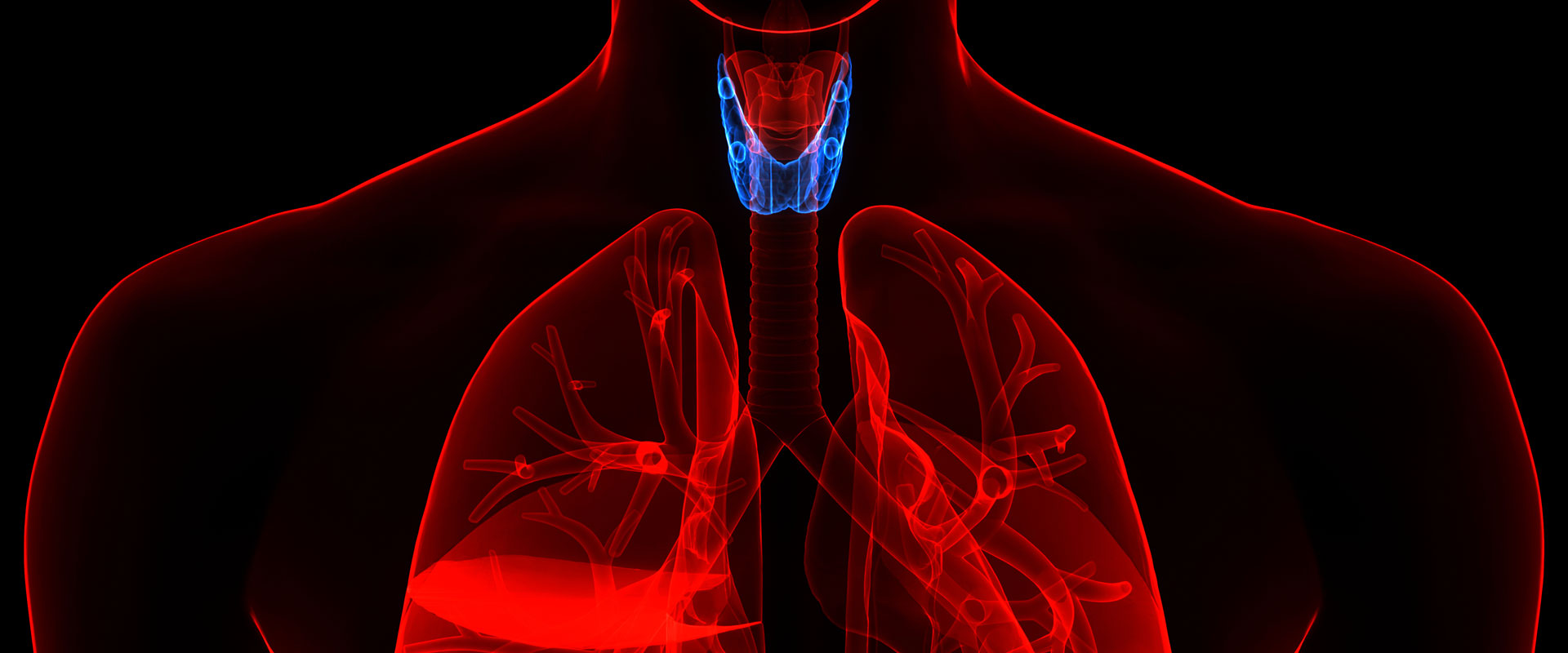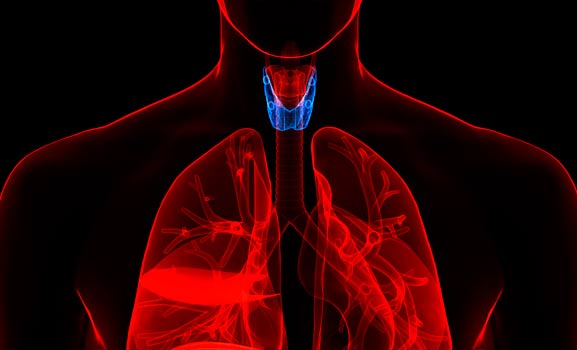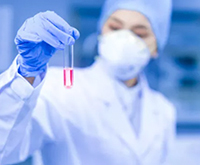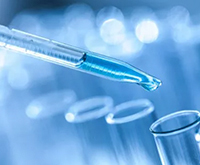Thyroid Function
The thyroid gland is a 2-inches long, butterfly-shaped endocrine gland generally located in the lower front of the neck. The thyroid functions to make thyroid hormones, which are released into the blood and then carried to every tissue in the body. Thyroid hormones regulate the body using energy, maintaining body temperature, and keeping the brain, heart, muscles, and other organs working.
For this reason, an imbalance in thyroid hormone levels can negatively affect your bodily functions and your mood. Thyroid tests are used to diagnose thyroid function by detecting thyroid hormone markers in the blood. The specific blood tests to test your thyroid can include Thyroglobulin (Tg), Thyroid Peroxidase (TPO), Thyroid Stimulating Hormone Receptor (TSHR), Triiodothyronine (T3), etc.
Thyroid Function Products
Thyroid Stimulating Hormone Receptor (TSHR)
| Antibody | Application |
| Mouse Anti-human TSHR mAb | For immunodiagnostic: ELISA, LFA, CLIA |
| Humanized Anti-human TSHR mAb |
| Antigen | Application |
| Recombinant Human sTSHR (Soluble) | For immunodiagnostic: ELISA, LFA, CLIA |
| Human TSHR Extractive of Cell Membrance (Full Length) |
Triiodothyronine (T3)
| Antibody | Application |
| Sheep Anti-human T3 mAb | For immunodiagnostic: ELISA, LFA, CLIA |
Thyroid Peroxidase (TPO)
| Antibody | Application |
| Humanized Anti-human TPO mAb | For immunodiagnostic: ELISA, LFA, CLIA |
Thyroglobulin (Tg)
| Antibody | Application |
| Humanized anti-human Tg mAb | For immunodiagnostic: ELISA, LFA, CLIA |
Thyroid Function Intro
The physiological function of the thyroid is mainly to promote the metabolism of three major nutrients, regulate growth and development, increase tissue oxygen consumption, promote energy metabolism, increase heat production and improve basal metabolism. When thyroid dysfunction occurs, hyperthyroidism or hypothyroidism will occur.
The hypothalamus-pituitary-thyroid axis mainly regulates the synthesis and secretion of thyroid hormones. Thyroxine (T4) and triiodothyronine (T3) are synthesized in thyroid follicular epithelial cells. Under the stimulation of pituitary thyroid-stimulating hormone (TSH), they are released into the blood after a series of changes.
All processes from iodine uptake to release in thyroxine synthesis have a promoting effect. More than 99% of T3 and T4 are bound to plasma proteins, mainly attached to thyroxine-binding globulin. Only about 0.4% of total plasma T3 and 0.04% of T4 are free, and only free T3 and T4 can Enter the target cells to play a role, and the part bound to the protein regulates and stabilizes free T3 and T4. The level of free T3 and T4 in the blood Fluctuating negative feedback causes an increase or decrease in the release of thyrotropin-releasing hormone (TRH) from the hypothalamus and the release of thyrotropin-releasing hormone (TSH) from the pituitary. The primary role of TRH is to promote the synthesis and release of TSH from the pituitary.
Thyroid Antibody
(1) Thyroglobulin antibody (TGA) and thyroid microsomal antibody (TMA): TGA and TMA in serum are two primary specific thyroid autoantibodies. TGA is a specific diagnostic indicator for chronic lymphocytic thyroiditis, often significantly elevated. Autoimmune thyroid disease TGA and TMA are elevated and can also be detected in the blood of other thyroid diseases and healthy people.
(2) Thyrotropin receptor antibody (TRAb): TRAb is also known as a thyroid-stimulating antibody (TSAb) or thyroid-stimulating immunoglobulin (TSI). TRAb is a kind of thyroid autoantibody produced in the autoimmune process of malignant diffuse goiter. It can stimulate the thyroid to produce thyroid hormones. The determination of TRAb is beneficial to the study of the pathogenesis of diffuse malignant goiter.



















